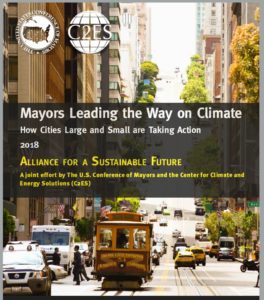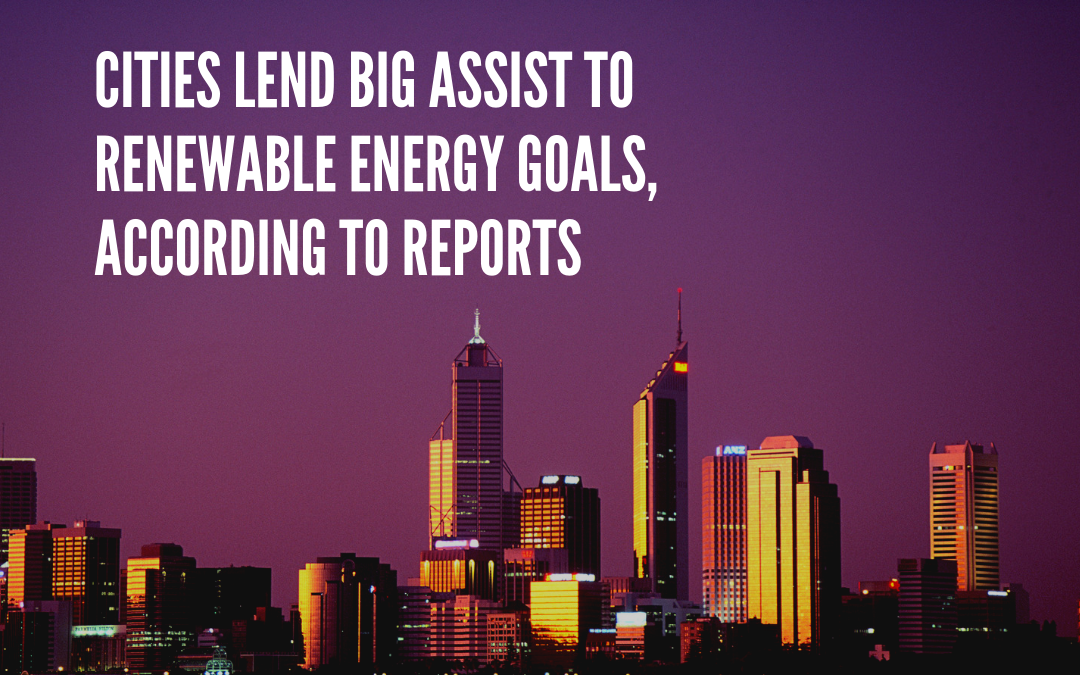Cities and mayors have emerged as a key force in reducing U.S. greenhouse gas emissions, according to a new nationwide survey.
A joint effort of the U.S. Conference of Mayors and the Center for Climate and Energy Solutions, the survey of nearly 160 American cities covered a broad range of topics relating to municipal involvement in environmental issues. Among its findings: 57 percent of the surveyed cities had plans for new climate actions for the coming year, while 65 percent reported using renewable electricity for municipal operations.
 “Cities of all sizes know that climate change is real — and therefore we are taking action,” said Steve Benjamin, mayor of Columbia, South Carolina. In a prepared statement he also said that taking action would be easier with more assistance from federal partners, “but in their absence, we will not abandon our responsibility to lead and preserve this earth for future generations.”
“Cities of all sizes know that climate change is real — and therefore we are taking action,” said Steve Benjamin, mayor of Columbia, South Carolina. In a prepared statement he also said that taking action would be easier with more assistance from federal partners, “but in their absence, we will not abandon our responsibility to lead and preserve this earth for future generations.”
The Center for Climate and Energy Solutions released the survey this month. Other findings include:
- Twenty-seven surveyed cities reported covering 30 percent or more of their operational needs with renewable energy. Eight reported that they cover 100 percent of their municipal electricity needs with renewable power.
- Nearly 60 percent of cities have green vehicle purchasing programs. Such policies account for 80 percent of new municipal vehicle purchases among the surveyed cities.
- Twenty-two percent of responding cities have explored bike-sharing programs and 21 percent are considering scooter sharing.
- More than half the surveyed cities have energy efficiency policies or incentives for new commercial and residential buildings.
- Sixty percent have launched or significantly expanded a climate initiative or policy over the last year.
In a separate development, a new nationwide report largely credits state and city governments for much of any expected progress toward achieving goals laid out in the Paris Climate Agreement.
Entitled “Fulfilling America’s Pledge,” the report found that current commitments and market forces will cut emissions by 17 percent below 2005 levels by 2025. That’s approximately two-thirds of the way to the pledge of 26-28 percent, as laid out in the agreement, according to the report, which was released by a coalition led by California Gov. Jerry Brown and former New York City Mayor Michael Bloomberg
“While headlines focus on the political fights in Washington, the real action on climate change is happening in cities, states and the private sector,” Bloomberg said in a statement. “Those groups are positioning the U.S. to uphold our end of the Paris Agreement, no matter what happens in Washington.”
However, The New York Times also reports that only 16 states and Puerto Rico have promised to uphold the Paris Agreement. Texas is not among them. The newspaper also reports that despite state action, the U.S. is still falling short of its pledged reductions.

